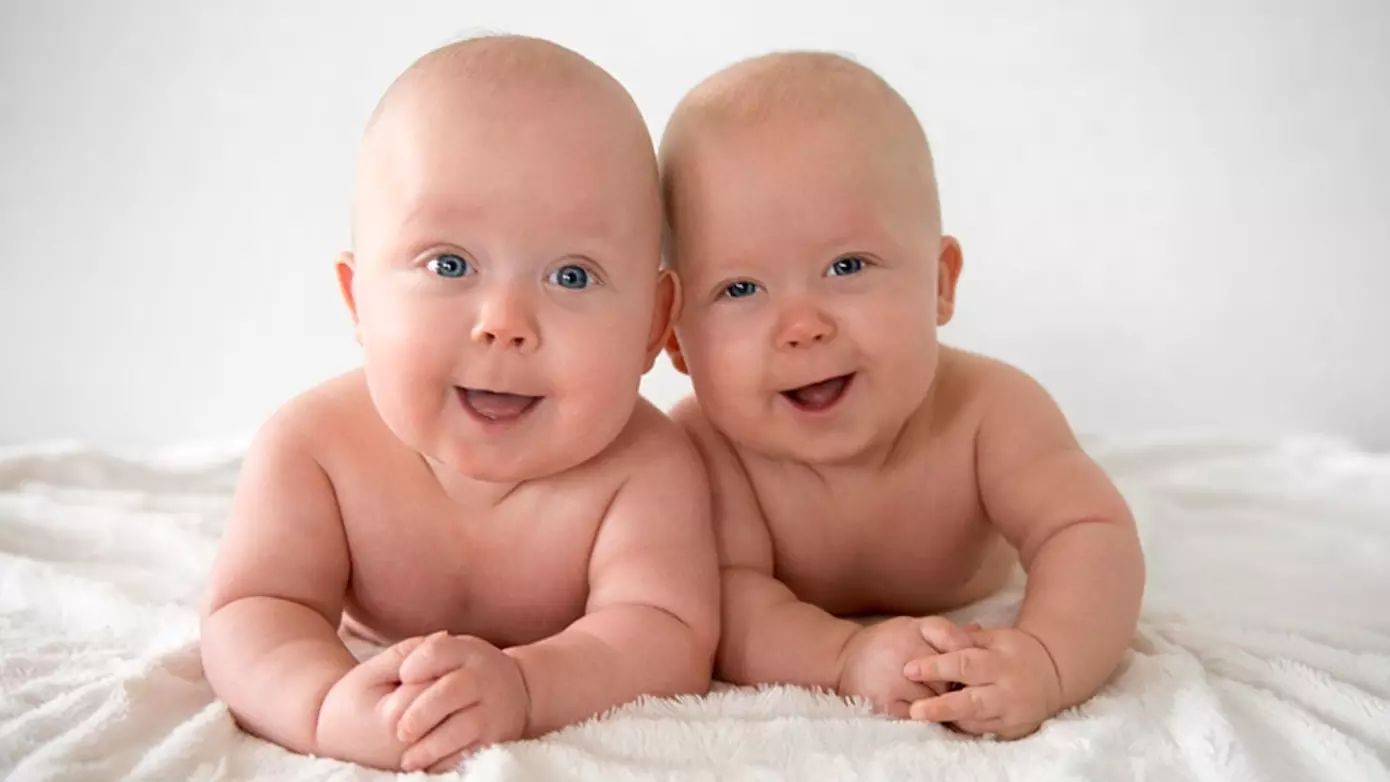What are your chances of having twins naturally?
While twin pregnancies often occur after fertility treatment (such as in vitro fertilization), we have to wonder — what are the chances of naturally occurring twins? Since it seems many Hollywood babies pop out in pairs (the Clooney twins and Beyoncé’s twins are recent examples), we thought we’d dive head first into a full-on twin investigation to see how common twins really are.
Twinning happens in two different ways
First, let’s go over some groundwork. Dizygotic twinning, more commonly known as fraternal twins, results from fertilization of two eggs with two different sperm. Monozygotic twinning (or identical twins) results when a single fertilized egg splits and forms two embryos.
Dr. Michael Nageotte, associate chief medical officer at Miller Children’s & Women’s Hospital in Long Beach, California, tells us that fraternal twins are more common than their identical counterparts and are the type that tend to increase with use of fertility medications.
Is twinning genetic?
Twinning in general can be affected by genetics, but again, we’re only talking about fraternal twins here. Dr. Michael Haydon, the medical director of maternal fetal medicine at Saddleback Memorial Medical Center in Laguna Hills, California, notes that “there does appear to be a genetic component of fraternal twins. Certain families do in fact have a genetic predisposition to having twins.”
One of the reasons may be due to the increased hormone levels in certain populations, he says. “For example, twins are more common in certain African countries and less common in Southeast Asia,” says Haydon. “Another common reason for conceiving twins, even without assisted reproductive technology, is maternal age.”
What is the incidence, then, of naturally-conceived twins?
Overall, the rate of twinning is around 1 in 90 pregnancies, says Nageotte. However, he notes that those rates do vary, as Haydon pointed out above — black Americans conceive twins more often than white Americans do, and the incidence is further decreased in Asian Americans.
It’s important to note that twinning doesn’t, in fact, skip generations — your chances tend to be higher if the women in your family have conceived fraternal twins, whether it was your great-grandmother, your grandma or your mom. Of course, if you’ve already birthed fraternal twins, your chances increase for it to happen again.
Also, since reproductive endocrinology has advanced over the last few decades, overall twinning rate (including fertility medication or assistance) is around 1 in 30 pregnancies.
Do twins increase pregnancy risks?
While many twin pregnancies progress without issue and delivery is a piece of cake, carrying twins does increase a few risks. For starters, Haydon says that twins tend to deliver earlier than their singleton peers (around 36 weeks).
Also, identical twin pregnancies can carry increased risks, as they share a placenta, and of course, if the lowest twin is breech, docs usually elect for a C-section. Twin moms-to-be are also at increased risk of developing gestational diabetes and preeclampsia.
You probably won’t have twins
So, you can relax — it’s likely that you won’t have twins despite the dizzying number of Hollywood twins in the news, although as we’ve discovered, there are quite a few things that can boost your chances, including genetics — or fertility medication or treatments.
by Monica Beyer
Originally published on SheKnows.




comments